I'm wondering about the reversed() method on a swift Array:
var items = ["a", "b", "c"]
items = items.reversed()
the signature of the reversed method from the Apple doc says that it returns a
ReversedRandomAccessCollection<Array<Element>>
could that be assigned back to items without doing what the apple doc say which is
For example, to get the reversed version of an array, initialize a new Array instance from the result of this reversed() method.
or would it give problem in the future? (since the compiler doesn't complain)
